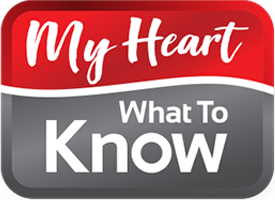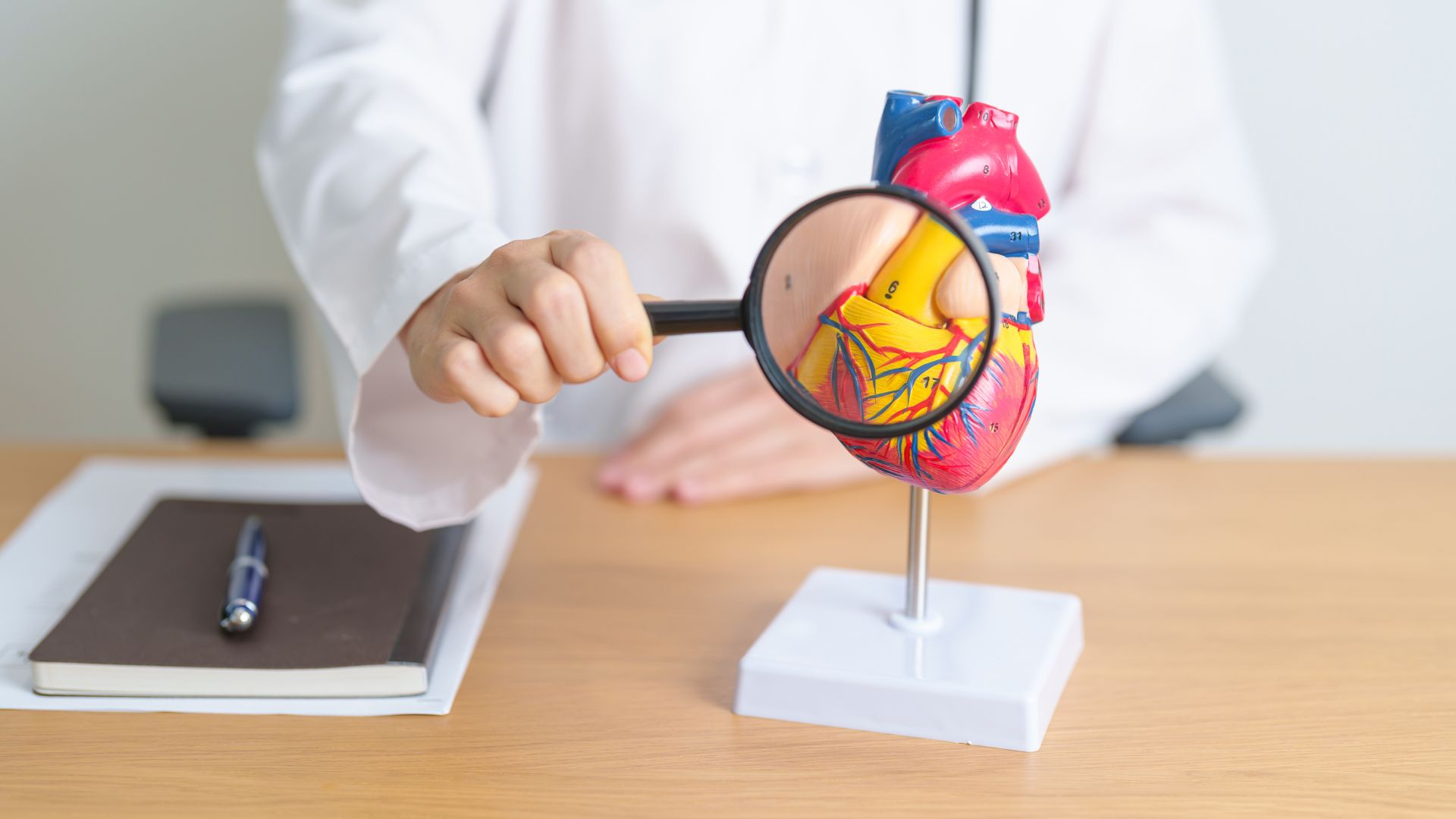Arrhythmia is a condition where the heart beats abnormally. This can mean the heart beats too fast, too slow, or in an erratic way. While some arrhythmias are harmless, others can disrupt blood flow and cause serious health issues. Because arrhythmias vary in type and severity, understanding the causes, symptoms, and treatments is essential for managing the condition. Here, we’ll explain what arrhythmia is, explore its causes and symptoms, and discuss treatment options for a healthier life.
What is Arrhythmia?
Arrhythmia happens when the heart’s electrical signals, which control its rhythm, get disrupted. This interference causes the heart to beat abnormally. There are different types of arrhythmias:
- Tachycardia: The heart beats too fast, usually over 100 beats per minute.
- Bradycardia: The heart rate slows to fewer than ~ 60 beats per minute, but most people don’t get symptoms until less than 50 bpm. Many people have a heart rate between 50-60 without symptoms and are healthy. In fact, people who have good conditioning often have heart rates in the 50’s.
- Atrial Fibrillation (AFib): This causes fast and irregular beats in the heart’s upper chambers. It also increases the risk of blood clots and stroke. Modifiable risk factors for developing atrial fibrillation include: high blood pressure, diabetes, obesity, sedentary lifestyle, sleep apnea, alcohol use, and smoking.
- Ventricular Fibrillation: A severe type of arrhythmia, it creates chaotic heartbeats that can cause sudden cardiac arrest if untreated.
- Premature Beats: These extra heartbeats can occur in healthy people. Though usually harmless, premature beats can be associated with other forms of heart disease or very frequent extra beats require attention.
Knowing the type of arrhythmia helps doctors choose the best treatment. Each type affects the heart differently and poses unique risks.
What Causes Arrhythmia?
Arrhythmias have many causes, from heart conditions to lifestyle choices.
- Heart Disease: Coronary artery disease, heart failure, and prior heart attacks weaken the heart, raising the risk of arrhythmias.
- High Blood Pressure: Over time, high blood pressure strains the heart, often leading to irregular beats and atrial fibrillation.
- Electrolyte Imbalances: Key minerals like potassium, calcium, and magnesium affect heart function. Imbalances in these minerals can disrupt the heart’s electrical signals.
- Alcohol and Caffeine: High amounts of alcohol or caffeine can increase heart rate and may trigger irregular beats.
- Medications: Certain drugs may disturb the heart’s signals and lead to arrhythmias.
- Thyroid Problems: Thyroid disorders can affect heart rate and increase the chance of irregular rhythms.
- Stress and Anxiety: High stress levels increase adrenaline, which may cause a fast or irregular heartbeat as well as premature beats.
By understanding these causes, you can take steps to reduce your risk. For instance, managing blood pressure and avoiding too much caffeine can make a difference.
Recognizing Arrhythmia Symptoms
Arrhythmia symptoms range from mild to severe. Some people may not notice any symptoms, making regular check-ups important.
- Heart Palpitations: A feeling of racing, pounding, fluttering, or skipped beat in the chest is common.
- Shortness of Breath: Many people feel breathless, especially when active or lying down.
- Dizziness or Lightheadedness: Reduced blood flow to the brain can cause dizziness, fainting spells, or a sense of imbalance.
- Chest Pain: Some arrhythmias strain the heart, causing chest pain or discomfort.
- Fatigue: An irregular heartbeat can reduce blood flow, leading to unusual tiredness.
- Anxiety: Feeling an abnormal heartbeat may cause anxiety, which can make symptoms feel worse.
Recognizing these symptoms and seeing a doctor early on is essential. Untreated arrhythmias may lead to serious issues like stroke or heart failure.
Treatment Options for Arrhythmia
Treatments for arrhythmia aim to restore normal rhythm, ease symptoms, and reduce complications.
- Medications, including antiarrhythmics, beta-blockers, calcium channel blockers, or anticoagulants.
- Lifestyle Changes:
- Diet and Exercise: Eating a balanced diet, staying active, and keeping a healthy weight all support heart health.
- Reducing Alcohol and Caffeine: Avoiding large amounts of alcohol and caffeine helps prevent episodes.
- Stress Management: Reducing stress with meditation, deep breathing, or yoga can lessen symptoms.
- Medical Procedures, including shocking the heart back to normal rhythm (electrical cardioversion), burning the area where the arrhythmia originates (catheter ablation), a pacemaker that speeds up the heart when it is too slow or a device that automatically detects ventricular arrhythmia and delivers a shock to treat it (implantable cardioverter defibrillator or ICD).
Discussing these options with a healthcare provider allows individuals to choose the most effective treatment.
Preventing Arrhythmia Complications
Although some arrhythmias are harmless, others increase the risk of complications like stroke and heart failure. Preventing these issues is important for long-term health.
- Preventing Blood Clots: Anticoagulants help reduce the risk of blood clots forming and traveling to the brain, which may cause a stroke.
- Managing Blood Pressure, Cholesterol, and Blood Sugar: Healthy blood pressure, cholesterol, and blood sugar levels help keep the heart strong and prevent more serious arrhythmias.
- Regular Monitoring: Frequent doctor visits allow early detection of any changes, making treatment adjustments possible.
- Recognizing Warning Signs: Patients with arrhythmia should watch for severe symptoms, such as dizziness, chest pain, breathlessness, or fainting spells as these may signal complications.
Building a Support System
Living with arrhythmia can feel challenging, but having support makes a big difference.
- Family and Friends: Supportive loved ones offer help, whether by encouraging lifestyle changes or going to appointments.
- Support Groups: Joining a group connects people with others facing similar challenges, providing comfort and practical advice.
- Healthcare Team: Working closely with doctors, nurses, and pharmacists ensures regular check-ups and personalized guidance for managing arrhythmia.
Arrhythmia is a complex yet manageable condition. By understanding the types, causes, symptoms, and treatments, you can make informed decisions that can ease symptoms and reduce risks. Taking these steps today lays the groundwork for a stronger, more stable heart and a brighter future.
—
An important step towards better health for many people is reaching a healthier weight, which can reduce the risk of cardiovascular disease. To find a physician near you who specializes in weight management, click here.
—
All the information provided on this site is for educational purposes only and is not a substitute for professional medical advice, diagnosis, or treatment. My Heart – What To Know is not a healthcare provider or clinic. ALWAYS consult with a qualified healthcare provider regarding any questions you may have about a medical condition. Never disregard professional medical advice or delay in seeking it because of something you have read on this website. If you think you may have a medical emergency, call 911 or go to the nearest emergency room immediately. No physician-patient relationship is created by this website or its use.
This article was sponsored by Novo Nordisk Canada. All content is created independently by My Heart – What To Know with no influence from Novo Nordisk.

